Arizona’s Top Resource for Court Reporting and Litigation Services!
A Timeline of Court Reporters’ Favorite Tool: the Stenograph
Information and graphics presented by stenograph.com
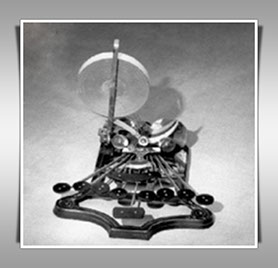
The Stenograph Shorthand Machine (1877)
The “Father of the Stenograph,” Miles Bartholomew, invented the shorthand machine in 1877. On this model, ten keys could be depressed one at a time to create a series of dots and dashes most similar to Morse code.
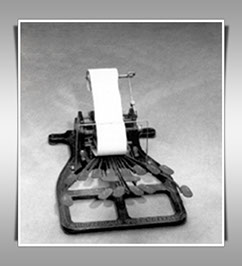
Anderson Shorthand Typewriter (1889)
This machine was developed by George Kerr Anderson. Unless the previous one, this machine had a keyboard that allowed the user to press two or more keys simultaneously. It recorded in English characters instead of code.
.
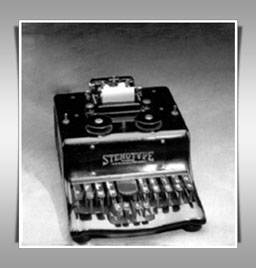
Ireland Stenotype Shorthand Machine (1911)
Created by the Universal Stenotype Company, the Ireland Stenotype was 40 pounds lighter than its predecessor, making it easier to take from place to place. This was the first stenograph with a totally depressible keyboard, giving reporters the ability to write with fewer strokes.
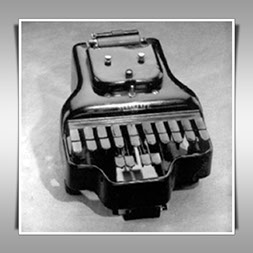
Master Model Stenotype (1914)
This machine was another creation from the Universal Stenotype Company, and was lighter at six pounds instead of eleven. It was the last machine developed by this company, as it went bankrupt during World War I.
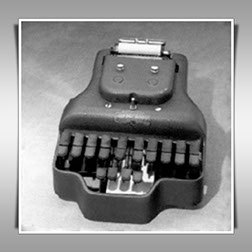
1927 LaSalle Stenotype
The LaSalle was the first two-spool ribbon system. This was another company that unfortunately suffered due to a national issue– in this case, the Great Depression. The court reporting industry dwindled until the end of the 1930’s.
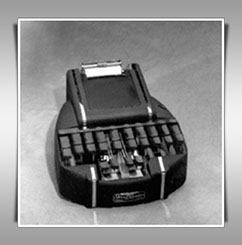
Stenograph Shorthand Machine
There were two models of this machine– the Secretarial Model, which used an 11 inch ribbon and held 100 folds of paper, and the Reporter model, which held 300 folds of paper. It was known for being reliable and quiet.
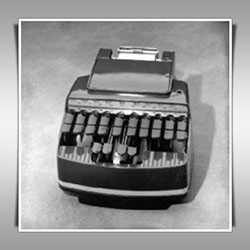
Stenograph Data Writer (1963)
This machine encoded a magnet tape with machine notes that could be transcribed onto a computer. The updated, organ-type switches made for good transmission with minimum key pressure, and could be attached to a cable connected to a tape recorder. It was updated in 1970 to use cartridge, and again in 1974 to use cassettes.
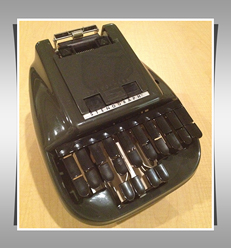
1982 Stenograph Machine
This machine was far more durable than others with an innovating plastic casing.
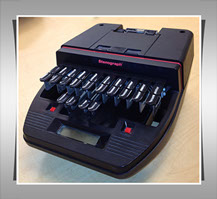
1987 SmartWriter
As computers became more and more popular, the SmartWriter was developed with the capability to encode machine notes on a floppy disk.
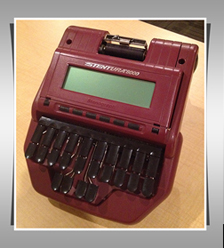
1992 Stenograph Stentura Series
With the creation of the Stentura came the ability to translate in realtime onto an LCD screen. It could be displayed in either English or shorthand.
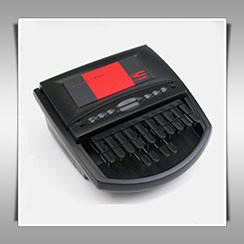
2001 élan Cybra
Paperless, inkless, ribbon-less, and greaseless, the Cybra truly a big change for the jump into the 21st century. In 2006, the machine was updated to include an optional wireless feature designed for realtime transfer.
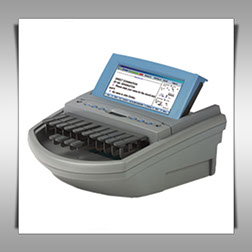
2003 élan Mira Series
This machine has an LCD screen that could be tilted upward for easier viewing. It featured Audiosync® OTG – on the go!, a USB port for realtime, and a DB9 serial port for Bluetooth.
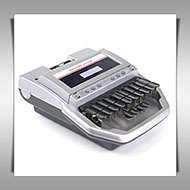
2005 Stentura Protégé Student
Designed specifically with students in mind, then Stentura featured a USB and serial connectivity port, as well as wireless option.
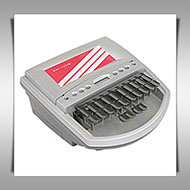
2005 Stentura élan Mira Student
This adaptation had all the bells and whistles the professional version had, but in a limited fashion at a student price.
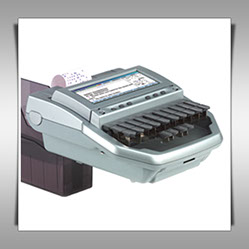
2006 Stentura Fusion
The shining feature of this machine was its ability use paper, or to be paperless. It was compatible with SD cards, and could record live testimony using AudioSync OTG, USB and DB9 ports. It also had a battery status display.
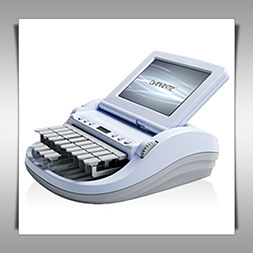
2009 The Diamante
With a vibrant flat-panel display, two SD cards ports, two USB ports, microphone and headset jacks for AudioSync, and an optional Bluetooth for WiFi realtime translation, this machine truly had it all.
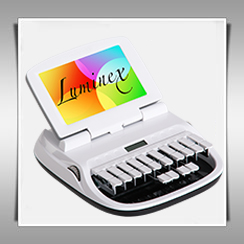
2015 The Luminex
The Luminex has duel key channels to keep keys in alignment, as well as chrome plated key levers to reduce friction and provide smoother action. TrueStroke technology results in cleaner steno notes.
Contact Us!
Our Location
1802 North 7th Street Phoenix, Arizona 85006
Our Location
Phoenix, Arizona Legal and Court Reporting News
Recent Posts

Bar Associations for Attorneys Across the Country
For attorneys, bar associations are a crucial resource. They provide programs, benefits, and advocacy for professionals in the industry in one, easily accessible location. But bar associations are not a one-size-fits-all organization. In order to have access to the...

Ways to Stay Safe and Healthy When Returning to Work
After a year of uncertainty, the general public is beginning to understand how to navigate daily life during the global pandemic. As a result, businesses are slowly returning to their offices. Some within the legal sphere have been in office for some time, while...

Why Book a Steno-Reporter?
Sometimes, people question why they should book a certified court reporting specialist when they can just use a recording device. Our new page outlines why that is a bad idea. Due to the unreliability, lack of impartiality, and no certification, it is possible that...

Ways to Make Travel Painless
Credit: CMW Legal professionals are always on the move. Sometimes, they travel across the city for a job. When a legal professional is in high demand, travel can take professionals across county lines, to the opposite end of the state, or even to the other side of the...

Coash & Coash Announces New Page on Scheduling
Coash & Coash is pleased to announce their new page on the benefits of scheduling your next court reporting service via your tablet or smartphone. Booking a service online saves attorneys and paralegals precious time they can use elsewhere to benefit their...

Coash & Coash Announce Health Law Court Reporters
Credit: healthlawcenterplc Coash & Coash is pleased to announce the latest addition to our areas of practice. This comprehensive database serves as a great resource for attorneys looking for a court reporter that has complete knowledge of their field. Our health...
